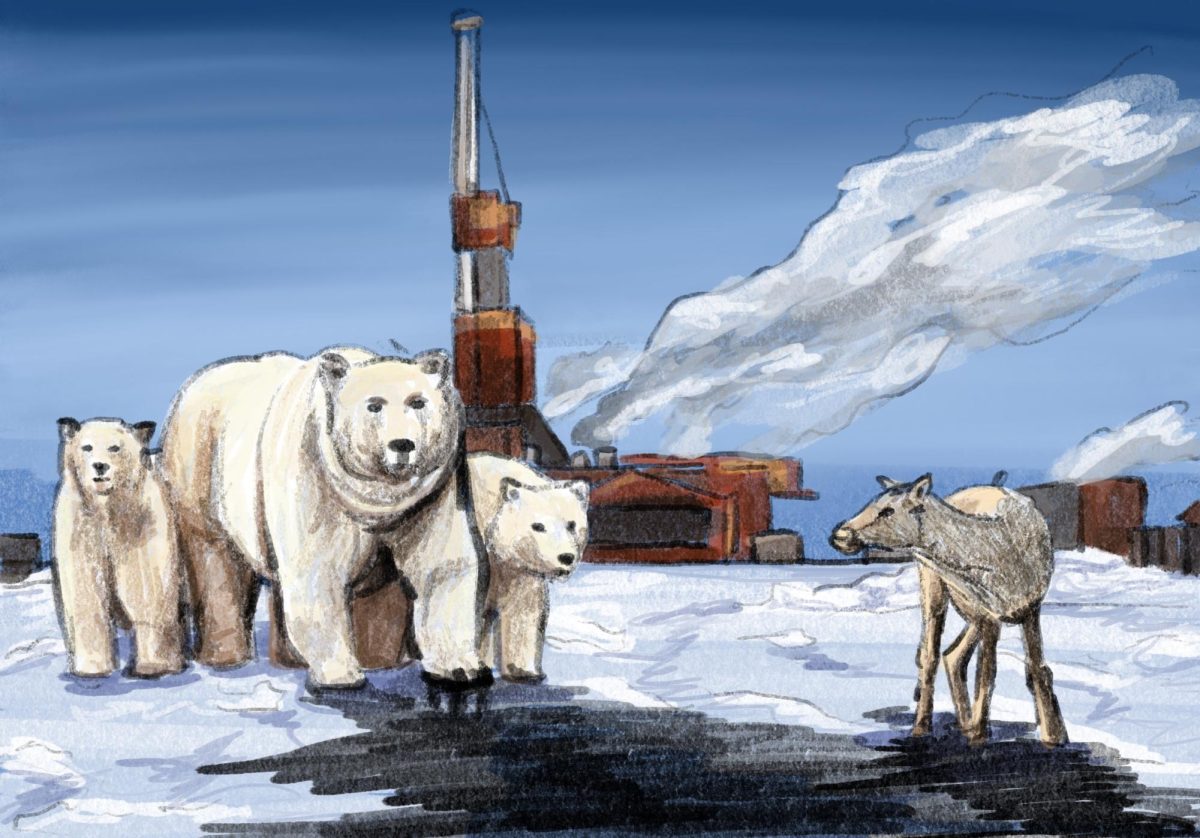President Biden just dropped a carbon bomb on all of us. Since his inauguration in 2021, Mr. Biden has proposed laws to prevent gas leases in Alaska and has been publicly against the use of fossil-fuels. During his 2020 presidential campaign, he pledged to stop all new oil drilling on federal land if he were elected. “No more drilling on federal lands,” he told voters. “Period. Period. Period. Period.”
However, he has reneged on that promise by approving the Willow Project, a concerning drilling proposal.
Under this proposal, ConocoPhillips, a multinational corporation, plans to construct 250 oil wells in Alaska. If the project meets its goal of producing 600 million barrels of crude oil, an estimated 280 million metric tons of greenhouse gases will be emitted over 30 years — that is the equivalent of adding two million gasoline cars to American roads each year for three decades.
Although the plan will create jobs for Alaskan Natives and benefit the economy, the implications that the project will have on the climate crisis surely outweighs those benefits.
Drilling is planned along the northern edge of the National Petroleum Reserve within the Arctic Circle.
Over the past 50 years, this area has seen rising temperatures at four times the global rate. Rising temperatures in this region cause underground permafrost layer to thaw, which releases even more trapped methane and carbon dioxide. Many speculate that political and economic pressure led the administration to give in and allow this drilling.
However, ConocoPhillips Chief Executive Officer Ryan Lance said, “Willow fits within the Biden Administration’s priorities on environmental and social justice, facilitating the energy transition [to clean energy] and enhancing our energy security, all while creating good union jobs and providing benefits to Alaska’s Native communities.”
While the Biden administration has directed hundreds of billions of dollars toward clean energy alternatives, few measures have been taken to limit oil production. This is due to the United States’ dependence on oil.
The President’s decision was motivated by fear of another threat: increasing gas prices. These prices cause a significant danger to American households. Many argue that it makes more sense for the U.S. to expand domestic production than rely on imports from countries, such as Saudi Arabia. Additionally, as of right now, the United States runs on petroleum. To suddenly halt oil production would be nearly impossible without a major energy reform.
President Biden envisions a more gradual energy transition. But, to have a real chance at reversing the damage caused by climate change, reforms must be made to prioritize environmental protection. Regardless of economic factors, Biden made a promise to focus on the climate, and this promise must be kept. The time for change is now, and if we keep waiting, we might be too late.





